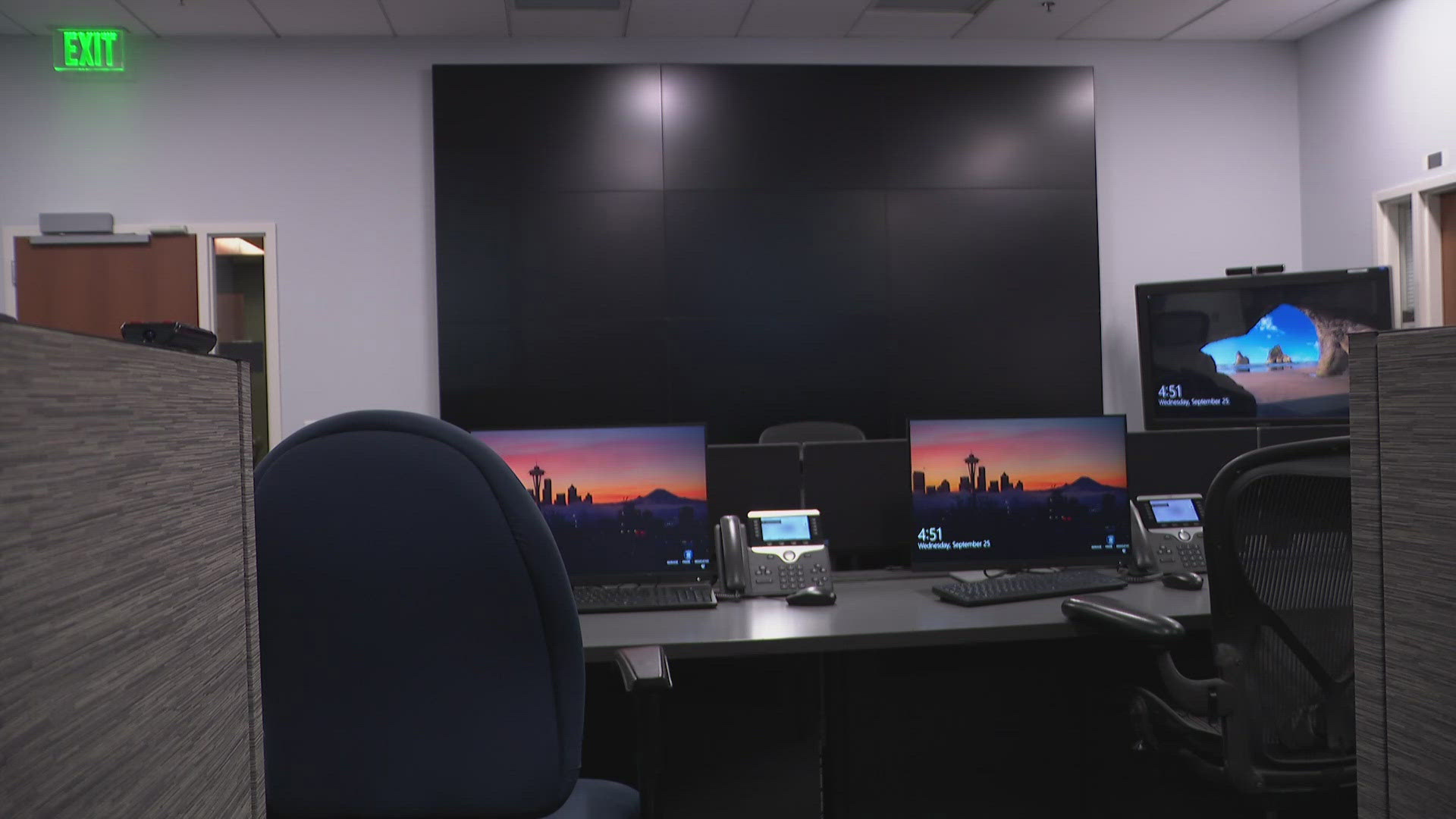SEATTLE — Should the city of Seattle allow police to put surveillance cameras in high-crime neighborhoods? It was a question posed to a committee of city council members this week.
On Tuesday, the committee members each voted yes to pass the bill along to the Oct. 8 regular council meeting. This gets the Seattle Police Department one step closer to introducing a new pilot program where they would be able to install live surveillance video cameras in Seattle neighborhoods that they say have the most violent crime.
"It's reported, we immediately have eyes on it," said SPD Chief Operating Officer Brian Maxey.
SPD already has a dedicated, yet empty, room in their headquarters that is equipped with screens for analysts to view the surveillance, also called closed-circuit television (CCTV).
Seattle police said they believe the technology will help them both respond-- and solve-- felony crimes like gun violence and human trafficking with more precision and situational awareness.
"This will give us video evidence," said Maxey.
The bill would allow police to put up video cameras in the Chinatown-International District, along the Aurora corridor, and in the Downtown Seattle core, said Maxey.
"This is where the violent crimes are surfacing," he said.
The cameras would also contain certain AI features, but not facial recognition, according to Maxey.
"We're able to track license plates, we're able to track video, from camera to camera," he said.
However, many members of the public have expressed their opposition.
The ACLU of Washington's technology policy director, Tee Sannon, told KING 5 via email, "The proposals are being rushed without full consideration." Sannon added, “These technologies do not reduce violent crime and disproportionately harm communities of color.”
Maxey said he believes this will allow for more accurate identifications of suspects and more appropriate responses.
"Very frequently police-community interactions are looked at as a negative, like, 'You are in our neighborhood. Why are you here? What are you doing to us?' as opposed to flipping it and saying, 'What are you doing for us? How are you protecting us?'" he said.
Another concern shared at Tuesday's meeting was whether the federal government, for example, could get its hands on the recordings.
"They pose serious civil liberty concerns and harms for immigrant and refugee communities, as well as for people who are seeking abortions and gender-affirming care," said Vanessa Reyes with Washington Immigrant Solidarity Network.
Maxey said the data is stored on cloud servers owned by a third-party company called Axon. He said contractually, they are required to agree to notify the city if another governing party requests the data. This, he says, so that the city can know to fight back, and "take that affirmative legal action to defend and say it is our data, not theirs, to give out," said Maxey.
Maxey estimates the technology will cost about $2 million in its first year.
It has the potential to expand. Councilmember Rob Saka asked for Alki Avenue to be included in the surveilled areas. The bill will be discussed further at the Oct. 8 council meeting.

